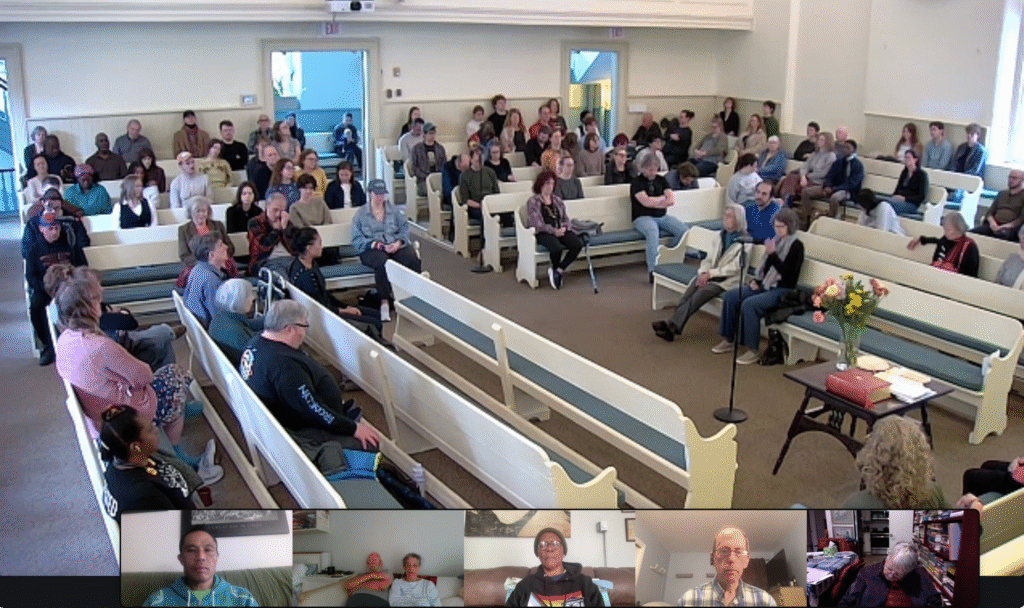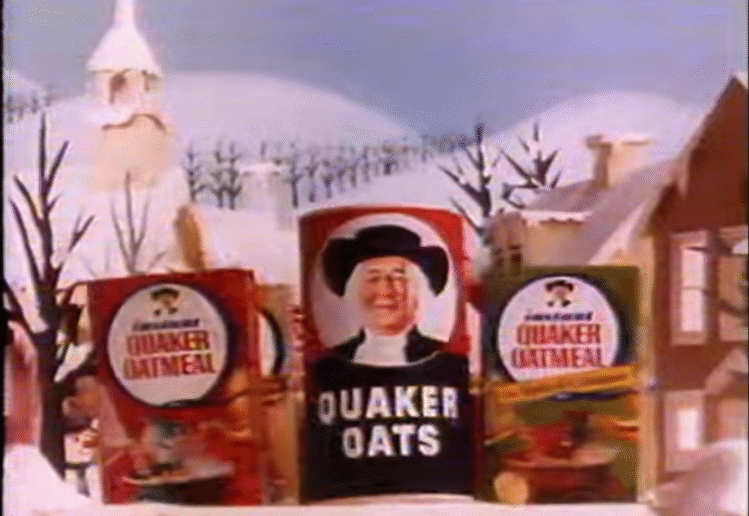I’ve been a media literacy educator for the past 17 years. And I’ve been a practicing Quaker for more than 25 years. Until recently, I haven’t put those two parts of me together.
At its face this feels like a shaky juxtaposition. Media literacy is being able to consume, analyze, evaluate and share media effectively and responsibly. Quakerism has traditionally been about avoiding “worldly” influences that get in the way of hearing the “still small voice” of God.
But for the past few months I’ve been experiencing what Quakers call a “leading” (kind of like a spiritual tug of the heart) to explore how media literacy can inform my faith practice. And it’s been eye-opening and surprising. Let me share a little of what I’ve found.
First I should back up and give the quick intro to Quakerism. Mostly known for being “the guy in on the box of oatmeal,” Quakers are a faith tradition that comes out of England in the post reformation era, around the mid-1600s. Quakers have a very simple belief system, rooted in the conviction that everyone has access to the divine without need for a priest or church. Each person has, what we call, the “Inner Light” of God, no matter their gender, race, culture or religion.
Out of that belief comes our practice of silent meditation together, where we listen for the divine to speak to and through us. That belief also informs our actions in the world – Quakers have traditionally been active in social movements against slavery, for women’s equality, and in opposition to war and the death penalty.
So how does that connect to media literacy?
Quakers historically have viewed most media as distractions from the divine. In the past we would avoid music concerts or theater. We didn’t draw, paint, dance, or play instruments. These were all “earthly” concerns and took attention away from the spirit. Here’s an example of a cautionary note from a Philadelphia-based Quaker community:
As our time passeth swiftly away, and our delight ought to be in the law of the Lord; it is advised that a watchful care be exercised over our youth, to prevent their going to stage-plays, horse-races, music, dancing, or any such vain sports and pastimes. . . .
—Philadelphia Yearly Meeting, 1806
That has changed and softened over the years, as Quakers have learned to be more engaged with the larger world, and to find the divine everywhere. But there is still a wariness and uncertainty among us when it comes to modern media and communications. Our presence online is almost nonexistent, mostly focused on the simplest websites, email lists, and a handful of Facebook groups.
I’m kind of an outlier as a very digitally engaged Quaker – from my early adventures in BBSs to micro-blogging, hosting podcasts, producing live streamed events, and now regularly sharing about my life on Instagram, Facebook and YouTube.
The online world is definitely full of distractions and dangers as a spiritual person. From violent content to intolerance, cruelty, suffering, and misinformation. Often I catch myself “doom scrolling” right before bed and have to literally toss the phone away.
But there are also opportunities to live your values online that I’ve been reflecting on.
For example, many Quaker communities now stream their services online. A few years ago, this would be unheard of. But the Covid-19 pandemic forced many religions like the Quakers to find ways to connect people without physically gathering. So Quaker meetings invested in cameras, computers, projectors, and Zoom accounts to bring their services online.
And despite pandemic era restrictions being lifted, many Quaker meetings still hold online or hybrid meetings for worship. For many older, more home-bound members, this is a life-saver. I still enjoy logging into my home meeting in Brooklyn on the occasional Sunday, where I see old friends and get to feel connected, almost as if I was there in the pews with them, instead of on my couch with a MacBook perched on my lap.

Quakers have also used online spaces and communications to show care and support for people facing war and persecution around the world. My home meeting maintains an active connection to a Quaker School in the West Bank of Palestine, where we send supplies, letters and other forms of support. Quakers in Ukraine regularly send out updates and requests for prayer to a Quaker Facebook group I follow. Kenyan Quakers let us know how life in that part of the world is.
Beyond just connecting to other people from my faith, I’m exploring how to support our values of equality, peace, and stewardship through my online actions. I try to actively follow and support voices from the margins such as Qatar-based news agency Al Jazeera, online journalist Johnny Harris, or BIPOC artists like LaTasha Barnes.
Where I am landing is that media literacy is a set of skills and habits that help me to navigate and participate in a media-saturated society. But my faith gives me a direction and a set of values to uphold, whether I am online or in the real world. Bringing those two strands together just makes sense, like oatmeal and peanut butter.
There’s a lot more to explore about this, from resisting echo chambers to pausing before sharing to examining my own and other peoples’ biases. I’ll be sharing more on this here and on my LinkedIn.
What about you? Do you follow a faith tradition? Does that inform how you act and behave in your online life? I’d love to learn from your experience in the comments.

